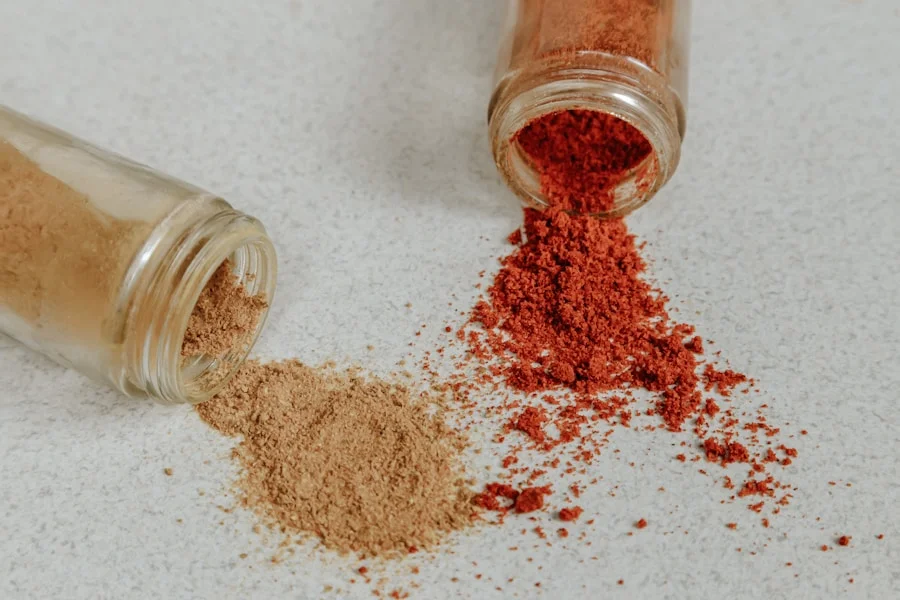Creatine is a naturally occurring compound found in small amounts in certain foods and produced by the human body. It is stored in muscles and utilized as a rapid energy source during high-intensity, short-duration activities such as weightlifting and sprinting. Supplementing with creatine involves consuming a concentrated form, typically creatine monohydrate, to increase the body’s creatine stores.
This can lead to enhanced exercise performance, muscle growth, and strength gains. Upon ingestion, creatine is absorbed into the bloodstream and taken up by muscles. Within muscle cells, creatine is converted into phosphocreatine, which rapidly produces adenosine triphosphate (ATP), the primary energy source for muscle contractions.
This increase in ATP production enables more intense and prolonged workouts, resulting in greater muscle stimulation and growth. Furthermore, creatine supplementation has been shown to increase muscle cell water content, contributing to muscle growth and improved exercise performance. Extensive research has consistently demonstrated the safety and efficacy of creatine supplementation in improving exercise performance and promoting muscle growth.
As one of the most researched and scientifically supported supplements available, numerous studies have confirmed its benefits for athletes and fitness enthusiasts. Whether seeking to increase muscle mass, improve strength, or enhance endurance, creatine supplementation can be a valuable addition to a fitness regimen.
Key Takeaways
- Creatine supplementation has been scientifically proven to enhance muscle growth and strength, making it a valuable addition to your workout routine.
- Creatine is a naturally occurring compound in the body that plays a key role in energy production during high-intensity exercise.
- Creatine supplementation has been shown to improve exercise performance, especially during high-intensity, short-duration activities like weightlifting and sprinting.
- In addition to its benefits for muscle and exercise performance, creatine supplementation has also been found to aid in endurance and recovery, making it a versatile supplement for athletes and fitness enthusiasts.
- Creatine has cognitive benefits as well, including improved mental focus and alertness, making it a valuable addition to your fitness routine for both physical and mental performance.
The Impact of Creatine on Muscle Growth and Strength
Enhanced Muscle Growth
By increasing the body’s stores of creatine, you can enhance your ability to perform high-intensity exercises and lift heavier weights, leading to greater muscle stimulation and growth. Creatine has been shown to increase muscle fiber size and improve muscle mass gains, making it a valuable supplement for individuals looking to build a lean and muscular physique.
Increased Strength and Power Output
In addition to promoting muscle growth, creatine supplementation has also been found to increase strength and power output. Studies have consistently demonstrated that individuals taking creatine are able to lift heavier weights and perform more repetitions during resistance training exercises. This can lead to greater improvements in strength and muscular endurance over time, allowing you to push your body harder and achieve better results from your workouts.
Achieving Fitness Goals
Overall, creatine supplementation can have a significant impact on muscle growth and strength gains, making it a valuable tool for individuals looking to maximize their workout results. Whether you are a beginner looking to build a foundation of muscle mass or an experienced lifter aiming to break through plateaus, creatine supplementation can help you achieve your fitness goals more effectively.
Enhancing Exercise Performance with Creatine Supplementation
In addition to promoting muscle growth and strength gains, creatine supplementation has been shown to enhance exercise performance in a variety of ways. By increasing the body’s stores of creatine, you can improve your ability to perform high-intensity activities and sustain maximal effort for longer periods of time. This can lead to greater improvements in athletic performance and overall fitness.
One of the primary ways that creatine supplementation enhances exercise performance is by increasing the body’s ability to produce ATP, the primary energy source for muscle contractions. By increasing ATP production, creatine allows for more rapid and sustained energy production during high-intensity activities such as weightlifting or sprinting. This can lead to improved power output, speed, and overall performance during workouts and athletic competitions.
Creatine supplementation has also been shown to increase muscle glycogen stores, which are the primary fuel source for high-intensity exercise. By increasing glycogen stores, creatine can help delay the onset of fatigue and improve endurance during intense workouts. This can allow you to push your body harder and achieve better results from your training sessions, leading to greater improvements in athletic performance over time.
Overall, creatine supplementation can have a significant impact on exercise performance, allowing you to train harder, lift heavier weights, and perform at a higher level during workouts and athletic competitions. Whether you are a competitive athlete or a recreational exerciser, creatine supplementation can help you achieve better results from your training and reach your fitness goals more effectively.
The Role of Creatine in Improving High-Intensity Workouts
| Benefit | Description |
|---|---|
| Increased muscle mass | Creatine supplementation can lead to greater gains in muscle mass and strength when combined with resistance training. |
| Improved exercise performance | Creatine can enhance high-intensity exercise performance and help increase the overall work capacity of muscles. |
| Enhanced recovery | Studies have shown that creatine supplementation can help reduce muscle damage and inflammation, leading to faster recovery after intense workouts. |
| Brain health benefits | Creatine may have cognitive benefits and could potentially help improve brain function and reduce mental fatigue. |
High-intensity workouts such as weightlifting, sprinting, and interval training place significant demands on the body’s energy systems. These activities require rapid and sustained energy production to fuel muscle contractions and maintain performance over short durations. Creatine supplementation has been shown to be particularly effective for improving high-intensity workouts by increasing the body’s ability to produce ATP, the primary energy source for these activities.
By increasing ATP production, creatine supplementation allows for more rapid and sustained energy production during high-intensity workouts. This can lead to improved power output, speed, and overall performance during activities such as weightlifting or sprinting. Additionally, creatine has been shown to increase muscle glycogen stores, which are the primary fuel source for high-intensity exercise.
By increasing glycogen stores, creatine can help delay the onset of fatigue and improve endurance during intense workouts. Overall, creatine supplementation can have a significant impact on high-intensity workouts by increasing energy production, delaying fatigue, and improving overall performance. Whether you are a powerlifter aiming to lift heavier weights or a sprinter looking to improve speed and power output, creatine supplementation can help you achieve better results from your high-intensity training sessions.
Creatine Supplementation for Endurance and Recovery
While creatine is often associated with high-intensity activities such as weightlifting or sprinting, it can also be beneficial for endurance athletes such as distance runners or cyclists. Creatine supplementation has been shown to increase muscle glycogen stores, which are the primary fuel source for endurance exercise. By increasing glycogen stores, creatine can help delay the onset of fatigue and improve endurance during long-duration activities.
In addition to improving endurance, creatine supplementation has also been found to enhance recovery following intense exercise. By increasing ATP production and reducing muscle damage, creatine can help speed up the recovery process and reduce muscle soreness after workouts. This can allow you to train more frequently and with greater intensity, leading to greater improvements in endurance over time.
Overall, creatine supplementation can be beneficial for endurance athletes by increasing glycogen stores, delaying fatigue, and improving recovery following intense exercise. Whether you are a distance runner aiming to improve endurance or a cyclist looking to recover more quickly between training sessions, creatine supplementation can help you achieve better results from your endurance workouts.
The Cognitive Benefits of Creatine for Mental Focus and Alertness
Improved Cognitive Function
Studies have consistently shown that creatine can improve cognitive function by increasing brain energy levels and enhancing neurotransmitter activity. This can lead to improved mental focus, alertness, and overall cognitive performance. Whether you’re tackling complex problem-solving tasks or making critical decisions, creatine can help you stay focused and mentally sharp.
Boosting Brain Energy
Creatine has been shown to increase brain phosphocreatine levels, which serve as a quick source of energy for brain cells. By increasing brain energy levels, creatine can enhance mental focus and alertness during cognitive tasks. This means you can power through mentally demanding tasks with greater ease and efficiency.
Enhancing Neurotransmitter Activity
Additionally, creatine has been found to enhance neurotransmitter activity in the brain, which can improve overall cognitive function. This can lead to better communication between brain cells, faster processing speeds, and improved mental clarity.
Real-World Benefits
Overall, creatine supplementation can have a significant impact on mental focus and alertness. Whether you’re a student looking to improve focus during studying or a professional seeking to enhance cognitive performance at work, creatine can help you achieve better results from your mental tasks. By incorporating creatine into your daily routine, you can unlock your full mental potential and take your performance to the next level.
Maximizing Your Workouts: How to Incorporate Creatine Supplementation into Your Fitness Routine
If you are interested in incorporating creatine supplementation into your fitness routine, there are several key factors to consider in order to maximize its benefits. First, it is important to choose a high-quality creatine supplement such as creatine monohydrate, which has been extensively researched and shown to be safe and effective for improving exercise performance and promoting muscle growth. When starting a creatine supplementation regimen, it is recommended to begin with a loading phase in which you consume a higher dose of creatine for the first 5-7 days in order to rapidly increase your body’s stores of creatine.
This loading phase typically involves taking 20 grams of creatine per day divided into 4 equal doses. After the loading phase, it is recommended to continue with a maintenance phase in which you consume a lower dose of creatine (3-5 grams per day) in order to maintain elevated levels of creatine in the muscles. It is also important to consider timing when incorporating creatine supplementation into your fitness routine.
Research has shown that consuming creatine post-workout with a source of carbohydrates can enhance its uptake into the muscles and improve its effectiveness for promoting muscle growth and recovery. Additionally, it is important to stay well-hydrated when taking creatine in order to support its absorption into the muscles. In conclusion, creatine supplementation can be a valuable addition to your fitness routine for promoting muscle growth, improving exercise performance, enhancing endurance, speeding up recovery, and boosting cognitive function.
By understanding how creatine works and how to incorporate it into your regimen effectively, you can maximize its benefits and achieve better results from your workouts. Whether you are a competitive athlete or a recreational exerciser, creatine supplementation can help you reach your fitness goals more effectively and take your workouts to the next level.
FAQs
What is creatine supplementation?
Creatine supplementation involves taking creatine, a natural substance found in small amounts in certain foods, as a dietary supplement to increase the body’s creatine stores.
What are the benefits of creatine supplementation?
Creatine supplementation has been shown to increase muscle mass, improve strength and power, enhance exercise performance, and aid in muscle recovery.
Is creatine supplementation safe?
When taken within recommended dosages, creatine supplementation is generally considered safe for healthy individuals. However, individuals with pre-existing medical conditions should consult a healthcare professional before using creatine supplements.
How does creatine supplementation work?
Creatine supplementation increases the body’s stores of phosphocreatine, which is used to rapidly produce energy during high-intensity activities such as weightlifting and sprinting. This can lead to improved performance and muscle growth.
Who can benefit from creatine supplementation?
Creatine supplementation can benefit athletes, bodybuilders, and individuals engaging in high-intensity exercise or resistance training. It may also be beneficial for older adults looking to maintain muscle mass and strength.
What are the different forms of creatine supplementation?
Creatine monohydrate is the most researched and commonly used form of creatine supplementation. Other forms include creatine hydrochloride, creatine ethyl ester, and buffered creatine, but their effectiveness may vary.
How should creatine supplementation be taken?
The typical dosage for creatine supplementation is 3-5 grams per day, taken consistently to maintain elevated creatine levels in the body. It can be taken with water or mixed into a beverage or protein shake.














